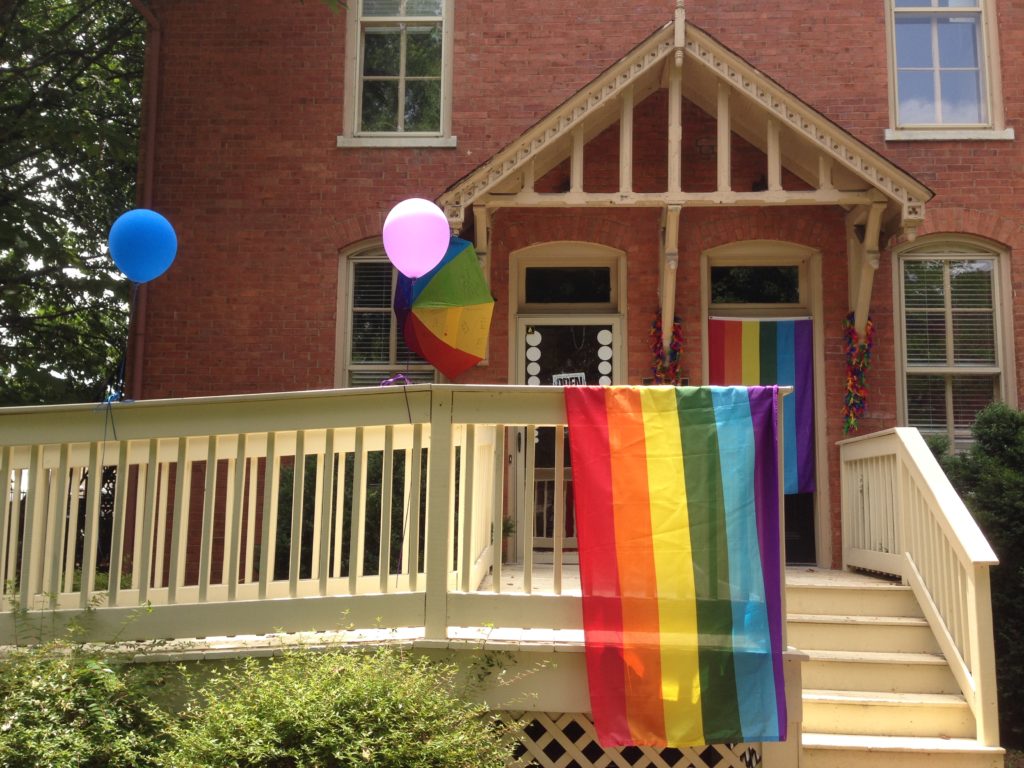
The Supreme Court decision making same sex marriage legal throughout the United States created a strange juxtaposition in places like Tennessee. While gay people can legally marry, they can still be fired for their sexual orientation.
In the hours after the decision was announced, the mood in Vanderbilt’s K. C. Potter Center for LGBTQI issues was slightly giddy. But not everyone felt comfortable talking on the record. Men and women wearing rainbow buttons, boas and capes in the safe confines of that space said they couldn’t afford to be out of the closet at work.
One woman said she already faces sexism in the science lab, she didn’t want to deal with homophobia, too. Another said she’s out to her co-workers at the medical center, but worries what would happen if patients knew her sexual orientation.
Grad student Kameron Kilchrist says he hopes the ruling will move gay rights activism into a new phase.
“Now whenever we talk to politicians about what they support and what they don’t support they can’t just say ‘oh, I support gay marriage,'” he says. Now Kilchrist expects the important questions will become “are you going to support housing nondiscrimination” or “are you going to support employment protections for LGBT people?”
Federal laws protect against discrimination based on attributes such as age, race, gender or disability but do not address sexual orientation or gender identity. In 2011, Nashville officials did pass a nondiscrimination rule that would have extended protection to those groups, but the state legislature later passed a law prohibiting local governments from enacting policies stricter than the state’s.


